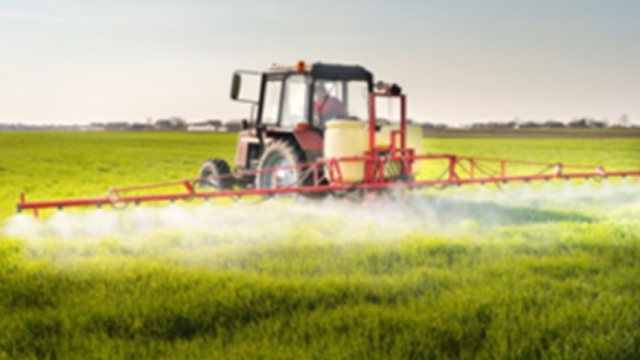Gardening enthusiasts and nature lovers alike are constantly seeking innovative ways to enhance the health and vitality of their plants. As we delve into the realm of sustainable and eco-friendly gardening practices, one concept takes center stage: organic soils and fertilizers. These natural alternatives not only provide an abundance of nutrients but also support the long-term health of the soil and the overall ecosystem. In this article, we will uncover the secrets to cultivating thriving gardens by harnessing the power of organic soils and fertilizers, taking a closer look at their benefits and how they can revolutionize our approach to gardening. Stay tuned as we unlock the secrets that will bring your garden to life!
Understanding Organic Soils
Organic soils are a key component in creating thriving gardens. These soils are enriched with nutrients derived from natural sources, such as decomposed plant matter, animal manure, and compost. By avoiding synthetic chemical fertilizers and pesticides, organic soils promote a healthier environment for plants to grow naturally.
One of the main advantages of organic soils is their ability to improve soil structure and water retention. The organic matter within these soils acts like a sponge, holding moisture and releasing it slowly to plants over time. This helps prevent water runoff and erosion, ensuring that plants have a steady supply of water even during dry periods.
Furthermore, organic soils foster the growth of beneficial microorganisms. These microscopic organisms, such as bacteria and fungi, play a crucial role in breaking down organic matter, releasing nutrients that plants can readily absorb. They also help suppress harmful pathogens, creating a natural defense system for your garden.
In summary, understanding the importance of organic soils is essential for any gardener looking to create a thriving garden. By utilizing these nutrient-rich soils, you can provide your plants with a healthy environment, promote sustainable gardening practices, and contribute to the overall well-being of our planet.
Benefits of Organic Fertilizers
Organic fertilizers offer a multitude of benefits to gardens and plants. Firstly, they improve soil health by enhancing its structure and fertility. Organic fertilizers contain natural substances, such as compost and manure, that release nutrients slowly over time, providing a steady supply of essential elements. This not only nourishes plants but also promotes the growth of beneficial microorganisms in the soil, resulting in a thriving and sustainable ecosystem.
Secondly, organic fertilizers contribute to the long-term health and sustainability of the environment. Unlike synthetic fertilizers, which often contain chemicals that can be harmful to plants, animals, and water sources, organic fertilizers are derived from natural sources and do not pose the same risks. By using organic fertilizers, gardeners can reduce their environmental footprint and support a more balanced and ecologically friendly approach to plant nutrition.
Furthermore, organic fertilizers help to enhance plant resilience and reduce the risk of diseases and pests. The slow-release nature of organic fertilizers ensures that plants receive a steady supply of nutrients, allowing them to grow strong and develop natural defenses against common problems. Additionally, the improved soil structure resulting from the use of organic fertilizers promotes better water retention, reducing the risk of water stress and maintaining optimal plant health.
In summary, organic fertilizers offer numerous benefits for both plants and the environment. They improve soil health, foster a sustainable ecosystem, and enhance plant resilience. By understanding and harnessing the power of organic fertilizers, gardeners can unlock the secrets to thriving gardens and cultivate a greener and more sustainable world.
Tips for Successful Organic Gardening
Nourish the Soil: The foundation of a thriving organic garden lies in healthy soil. Organic soils are rich in nutrients, microorganisms, and organic matter. To enhance your soil’s fertility, incorporate compost into the garden beds. Compost acts as a natural fertilizer, providing essential nutrients and promoting beneficial microbial activity. Additionally, consider using cover crops to prevent soil erosion and improve soil structure. By nourishing the soil, you lay the groundwork for vibrant and productive plants.
how do you know when a cucumber is ready to pickChoose the Right Organic Fertilizers: Organic fertilizers are derived from natural sources and are essential for replenishing nutrients in the soil. Make sure to select organic fertilizers that align with your specific gardening needs. For example, bone meal is high in phosphorus, which promotes flowering and fruiting, while seaweed extract is rich in trace minerals that boost overall plant health. By using the right organic fertilizers, you can ensure that your plants receive the necessary nutrients without relying on synthetic chemicals.
Practice Crop Rotation: Crop rotation is a valuable technique in organic gardening that helps prevent the buildup of pests and diseases. Rotating crops each season disrupts the lifecycle of common garden pests, reducing the need for chemical intervention. It also helps balance soil fertility by alternating nutrient demands. Plan your garden layout in a way that allows for easy rotation, ensuring that plants from the same family are not grown in the same spot year after year. Embracing crop rotation is an effective strategy for maintaining a healthy garden ecosystem.

Remember, organic gardening is a holistic approach that fosters the harmony between plants, soil, and the environment. By implementing these tips, you can unlock the secrets of thriving gardens and enjoy the bountiful rewards of organic soils and fertilizers.
















